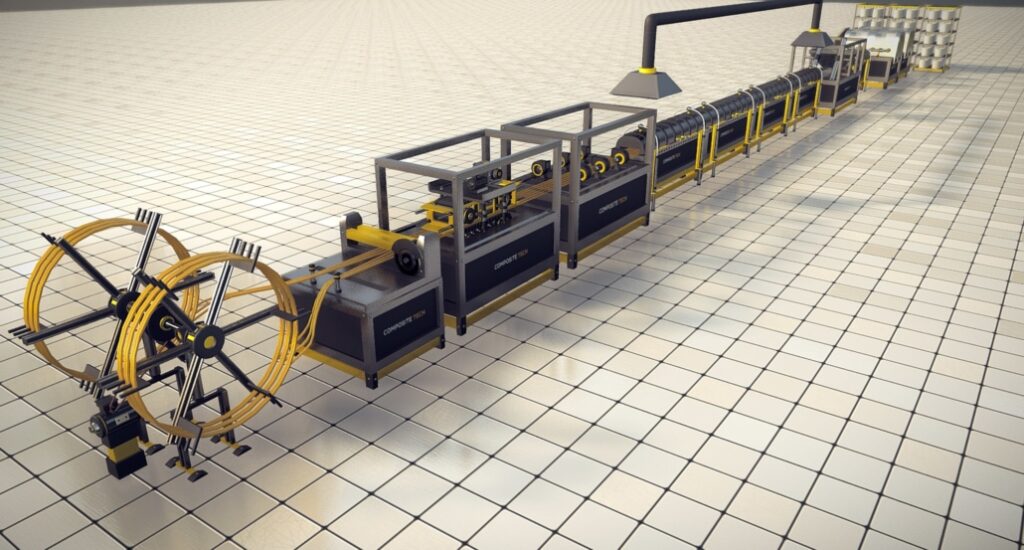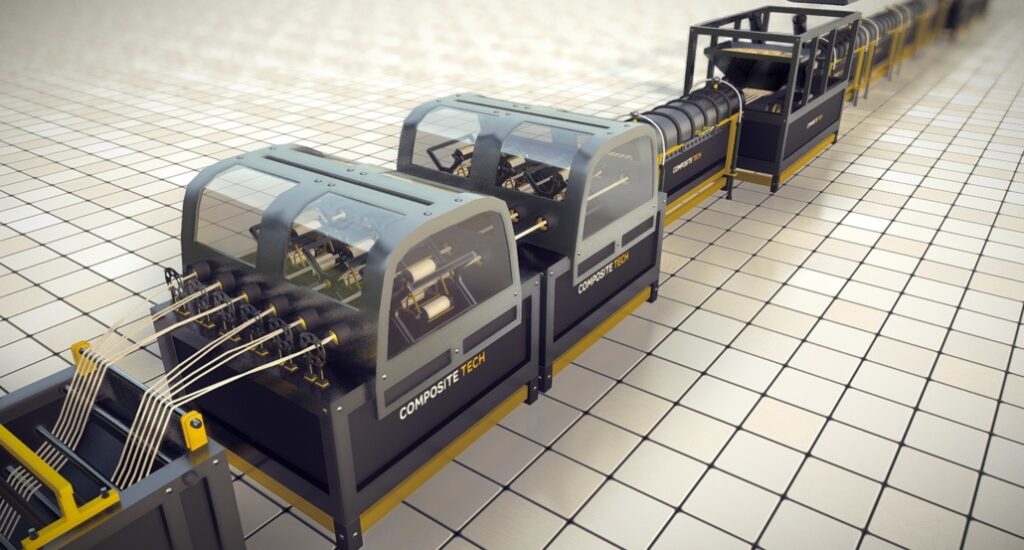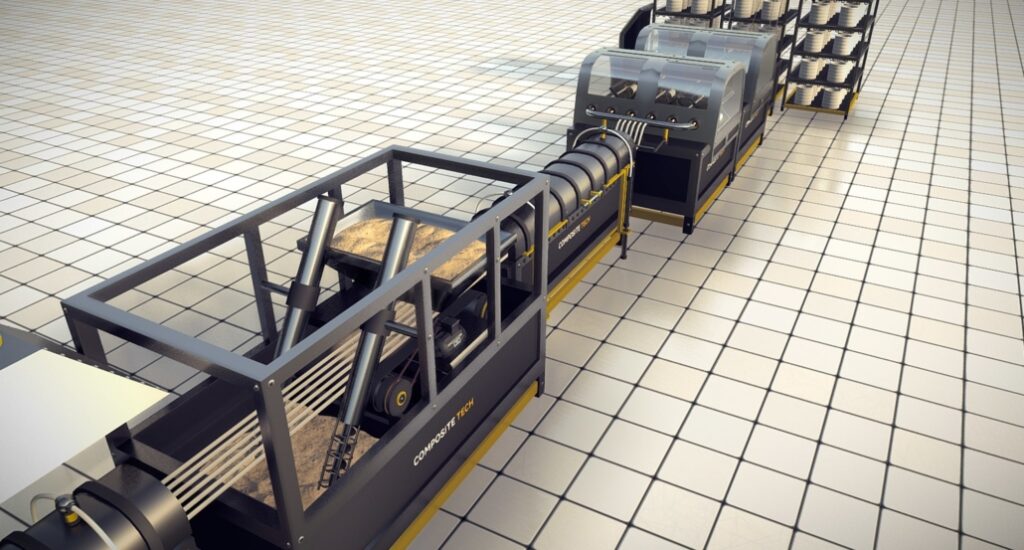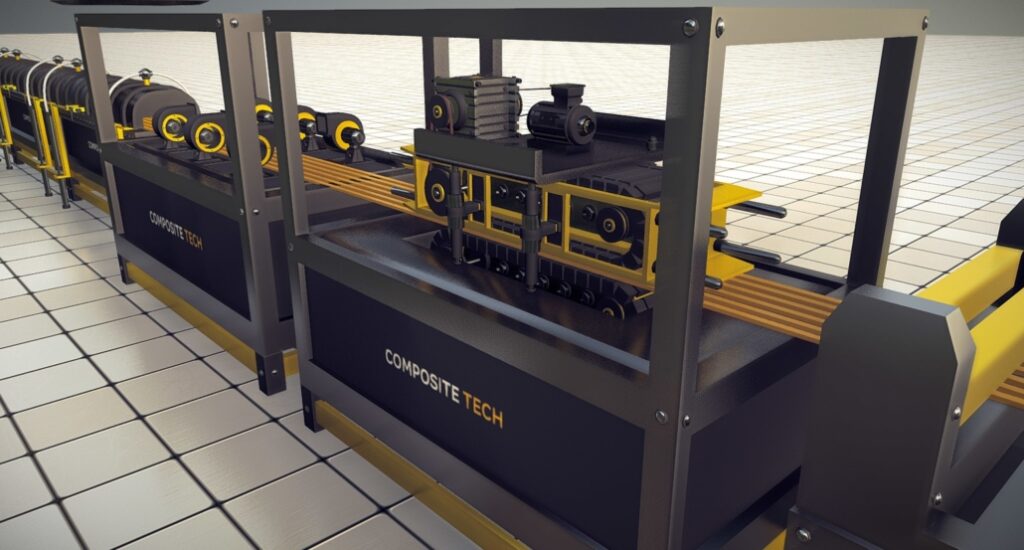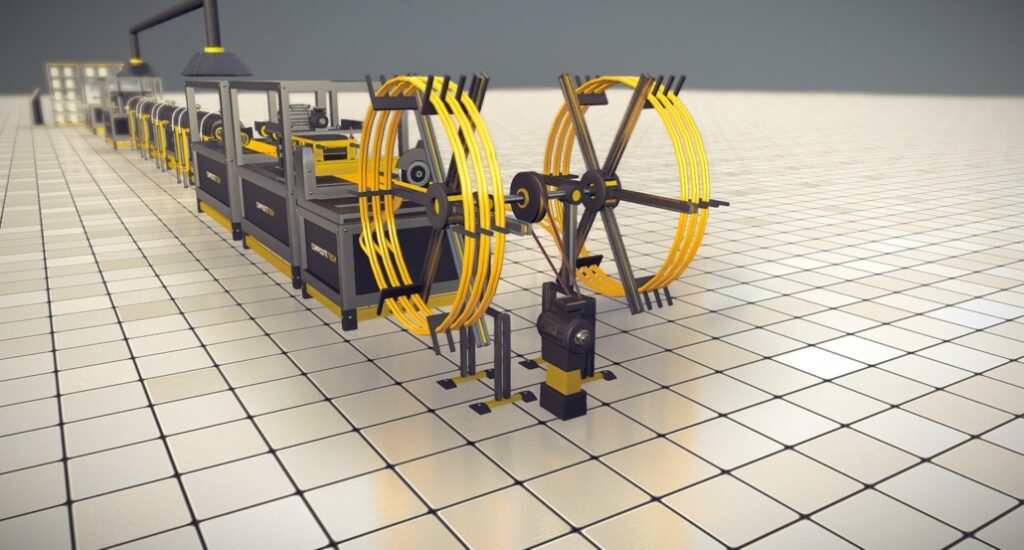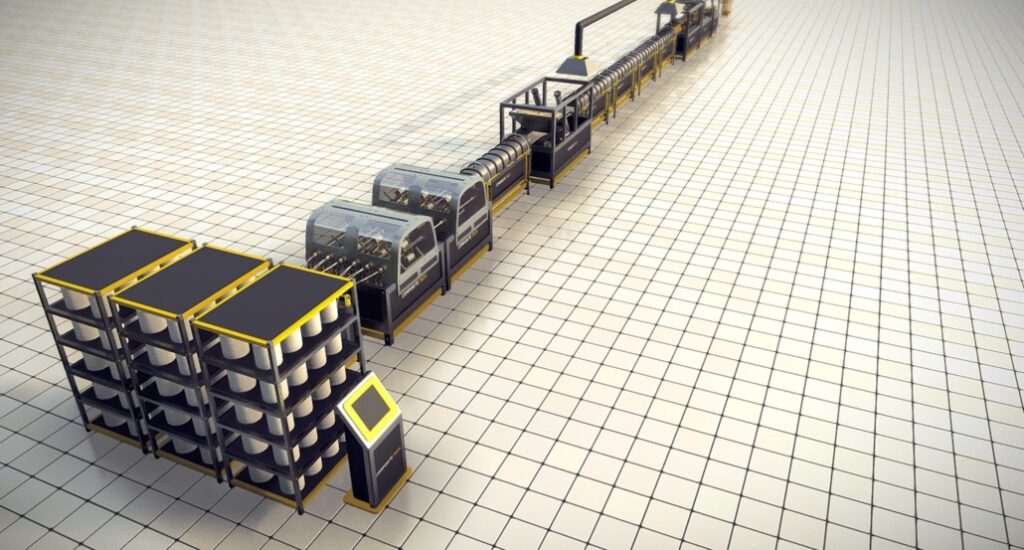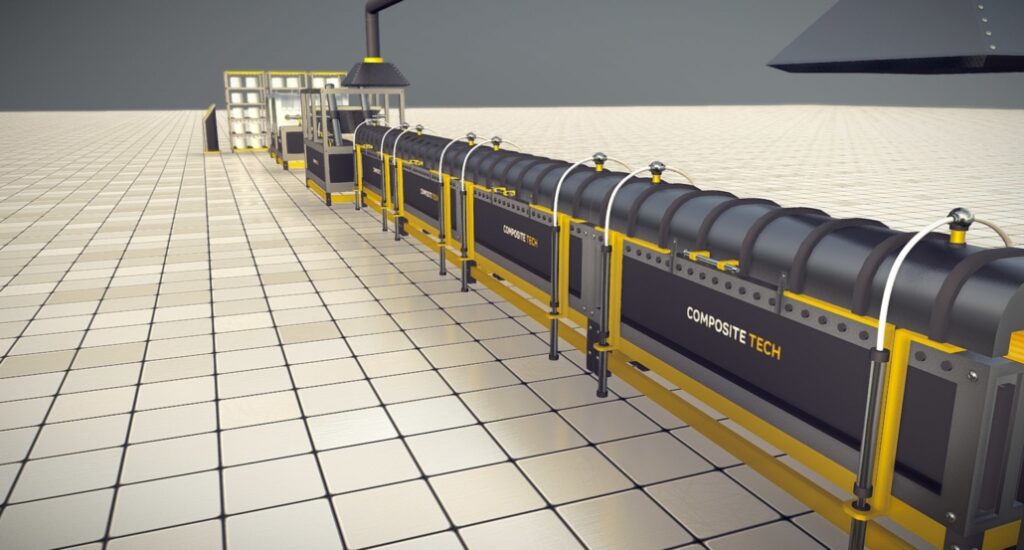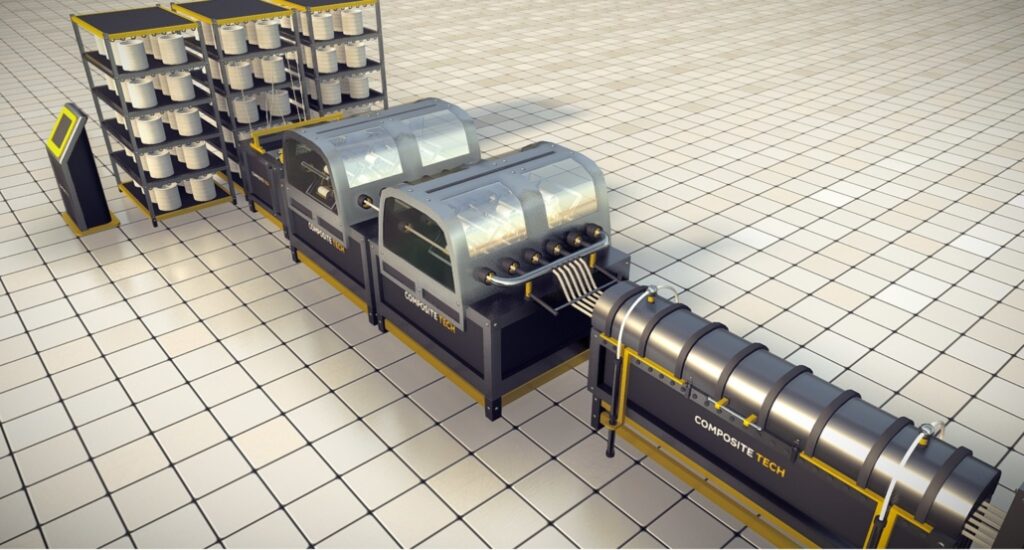FRP production lines in Netherlands. Rebar, mesh, bent elements, pipes, tanks, silos, profiles
Composite-Tech Netherlands is globally known for taking FRP production lines to the level of full automation and unmatched performance. To this day we remain as the leading manufacturer of the most advanced FRP pultrusion machines for basalt and fiberglass rebar, mesh, bent elements, pipes, tanks, profiles and silos. Furthermore, we supply our equipment not only to clients in Netherlands, but globally, assembling each FRP rebar production line at the client’s site, which in turn makes our lines truly turnkey. As you may know, the demand for composite construction materials in Netherlands is thriving like never before and this is why it is a perfect opportunity to either jump start or expand your business with FRP rebar manufacturing equipment.
Addition to the FRP production line range
To add to an already existing range of rebar production lines, we have recently unveiled an additional line of FRP pultrusion machines that manufacture pipes, tanks, profiles and silos. We believe that the benefits of switching to fiberglass composites are obvious and do not require any additional praise. As a result, all major construction companies have already switched or are in the process of implementing composites into construction. And this is where Composite Tech comes in, allowing these companies not only to increase business profitability, but also turn construction towards a highly sustainable and cost effective level, unmatched by conventional raw materials.
Running at the forefront of this change, Netherlands has historically shown high demand for fiberglass rebar, mesh and other composites. Once again, this is down to the advantages that these products bring and it is exactly where our FRP pultrusion machines slot in. In addition to initial advisory that we offer to our clients, each rebar production line is complemented with on site assembly, engineers training and turnkey launch of production. This is why even those companies that have never dealt with this type of production before, have a paved way of entering the industry. Join the Composite Tech family today, and start your sustainable FRP production as early as three months!
FRP production equipment technology benefits
Following the aforementioned facts, we reach the benefits of the FRP technology over steel rebar, mesh and bent elements. Although these are already widely known in the construction industry, we would like to go over them once again, and outline the key factors that serve as the reason why the world is shifting to FRP rebar.
- Corrosion resistant – FRP rebar, mesh, BE do not rust and are immune to salt ions, chemicals and concrete inherent alcalines. This is important when you build concrete structures in coastal areas near seas, oceans, lakes and rivers. FRP is not affected by corrosion and this means that concrete won’t crack as rebar will not expand like steel.
- Zero decay – FRP rebar eliminates cracks in the concrete blocks and consequent breaking of structure. Therefore, we extend life expectancy of the blocks and eliminate the need for refurbishment. Our tests show that concrete structures will remain intact for over 80 years without critical cracks and deformation of the structures that contain FRP rebar.
- Price – Steel has doubled in price since mid 2020, whilst the general market suffers from constant fluctuations. This makes it hard to forecast your steel rebar production prices. Opposingly, FRP Rebar raw materials have historically been decreasing in price and maintain a stable price behaviour.
- Strength and temperature resistance – The end product of our production lines withstands -70 to +150 degrees Celsius range of temperatures and is 5 times stronger than its steel counterpart.
- Transportation – FRP rebar is over 5 times lighter than steel. This multiplication factor means that you can transport at least 5 times more FRP rebar using the same machinery and transportation techniques as with steel rebar. This then becomes an integral part of your cost and profitability calculations, decreasing these factors to minimum.

